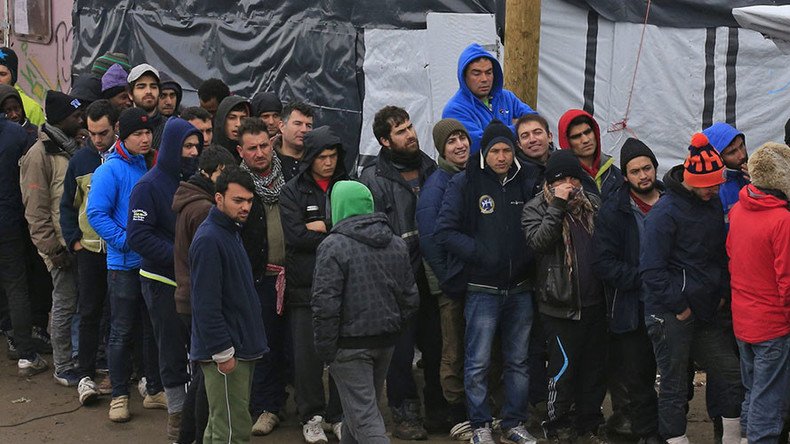Failed attempts to enter UK illegally triple in a year amid refugee crisis

Home Office figures reveal a record number of unsuccessful clandestine attempts to enter Britain each month via European ports and the Channel Tunnel as the refugee and migrant crisis continues.
More than three times as many refugees and migrants attempted to enter the UK illegally in July 2015 compared with the same month in 2014.
Some 13,000 made the journey in 2015, compared to 4,000 in the previous year, according to figures released after a Freedom of Information request by the Economist.
A significant number of the migrants were from Eritrea, Sudan and Syria – many of whom attempted to enter the UK by hiding in vehicles traveling on ferries or in the Channel Tunnel to Dover, or on freight trains heading to Folkestone.
Immigration Minister James Brokenshire said the UK has invested in new security infrastructure to secure its borders.
“The UK government has invested tens of millions of pounds to bolster security at the ports in northern France and the Border Force has doubled its contracted freight searching and sniffer dog capacity.
“In addition, critical new security infrastructure is in place at Calais and Coquelles, along with hundreds of new French police officers, Border Force officers and security guards, coordinated from a new joint command and control center in Calais involving law enforcement staff from both countries,” he said on Tuesday night.
Govt deports thousands of child refugees to warzones, double the number originally claimed https://t.co/Gzn1gcUY3Spic.twitter.com/E0Wam3sPEy
— RT UK (@RTUKnews) February 10, 2016
Frank Duvell of the University of Oxford’s Centre on Migration, Policy and Society believes the rise is due to the tenacious spirit of the refugees and migrants, many of whom are fleeing worn-torn parts of the Middle East and Africa.
Most refugees are willing to try to enter the UK illegally 11 or 12 times, up from five or six times a year ago, he said. Those attempting to enter the UK via the Channel Tunnel and ferries are likely to have a good case for asylum, he added.
Duvell said the British border is among the tightest in Europe since the Iron Curtain.
Detected migrants are held by the authorities in detention centers in what Chief Inspector of Prisons Peter Clarke described as “unacceptable conditions” in a report on Tuesday.
‘Refugees must be respected’: NGOs call on world leaders to walk the talk on Syria crisis https://t.co/fwI0prtlphpic.twitter.com/vvOTCanAlA
— RT UK (@RTUKnews) February 3, 2016
The report also found that hundreds of the refugees and migrants picked up by the Home Office were forced to sleep on a concrete floor and were not provided with clothing, food or hot drinks. It called the conditions “wholly unacceptable.”
“Many had had long and arduous journeys ... some had not eaten for very long periods and were hungry. Detainees gestured to us that they were hungry by pointing to their open mouths,” he said.
Clarke described the physical condition of the detainees, and said that many of the refugees and migrants were left untreated due to a lack of adequate facilities at the centers.
“Detainees arrived with scabies, headaches and other conditions related to dehydration, such as diarrhea. However, toilet and washing facilities were inadequate and blankets were not washed after each use, presenting obvious health risks. There appeared to be a lack of urgency to transfer detainees from the facility,” he added.












